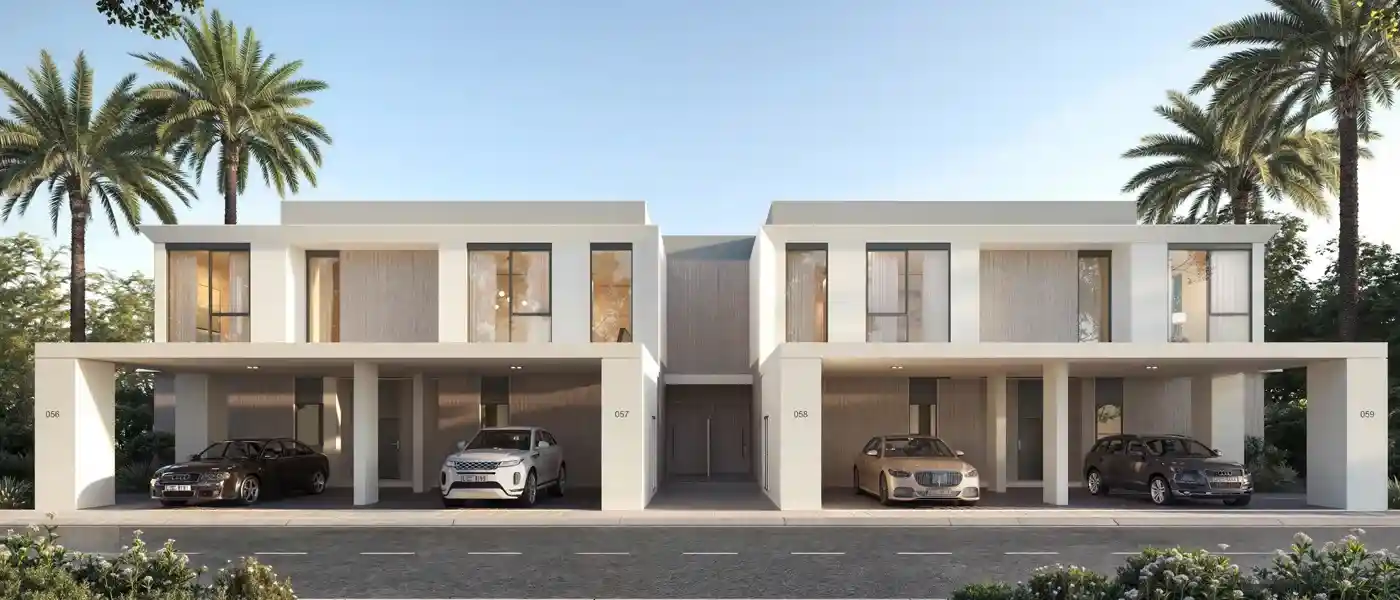
Buy Property in Dubai from Ireland: Step-by-Step Guide
Buying property in Dubai from Ireland has become an increasingly popular investment option for those seeking to diversify their portfolio, enjoy high rental yields, or even establish a second home in one of the world’s most dynamic cities. With Dubai’s strong real estate market, no property taxes, and a well-regulated legal system, many Irish investors find the prospect of owning property in Dubai attractive. If you’re wondering how to navigate this process from Ireland, this guide will break it down step-by-step to make it simple, secure, and efficient.
A Guide to Buying Property in Dubai from Ireland
For Irish investors, buying property in Dubai is a smooth process, thanks to the city’s foreign-friendly policies. While there are no restrictions on foreigners purchasing property in Dubai, there are a few important steps to follow and factors to consider to ensure the transaction is seamless and hassle-free.
1. Choose the Right Property and Area
Dubai offers a variety of property types, from luxurious beachfront villas to modern apartments in bustling urban areas. As an investor from Ireland, you’ll want to focus on areas with high demand and excellent rental potential. Popular areas for foreigners include Downtown Dubai, Palm Jumeirah, and Dubai Marina. These locations tend to offer high returns on investment, making them prime choices for both short-term rentals and long-term tenants.
- Look for properties in popular freehold areas like Downtown Dubai, Palm Jumeirah, or Dubai Marina.
- Focus on properties with strong rental yields and high demand.
- Consider areas with future growth potential and planned developments.
2. Understand the Legal Framework for Foreigners
When buying property in Dubai, it’s crucial to understand the legalities surrounding foreign ownership. While foreign nationals can own property in Dubai, they are limited to certain areas known as freehold zones. These include iconic developments like Dubai Marina, Downtown Dubai, and Jumeirah Beach Residence (JBR). It’s important to check if the property you’re interested in falls within these zones. Additionally, the UAE government has implemented a clear legal framework that ensures property transactions are transparent and secure, protecting the rights of foreign investors.
- Foreign buyers can only purchase property in designated freehold zones.
- The UAE has strict laws protecting foreign investors and ensuring transparency in transactions.
- It’s essential to check whether the property falls under freehold zones before proceeding.
3. Financing Options for Irish Investors
Financing a property purchase in Dubai from Ireland is feasible, but it’s important to be aware that banks in Dubai typically require a substantial deposit, ranging from 20% to 50% of the property’s value for non-residents. While Irish investors can approach banks in Dubai for mortgage options, the terms may differ from what they’re used to in Ireland. It’s essential to check the mortgage eligibility criteria and loan conditions before making a decision. Many investors opt for paying in full to avoid the hassle of securing financing, especially since Dubai has no property taxes, which makes up for the upfront costs in the long run.
- Banks in Dubai typically require a deposit of 20% to 50% for non-residents.
- Mortgage terms may vary for foreign investors, so it’s essential to check the terms before applying.
- Many investors choose to pay in full to avoid securing financing, especially since there are no property taxes in Dubai.
4. The Role of Real Estate Agents and Lawyers
When purchasing property in Dubai from Ireland, working with a local real estate agent and lawyer is highly recommended. Real estate agents can help you identify properties that match your budget and investment goals. A lawyer, on the other hand, will ensure all legal documents are in order, from contracts to title deeds, and guide you through the process to ensure compliance with UAE laws. Most agents and law firms in Dubai are experienced in dealing with international buyers, so they will be familiar with the specific needs and concerns of investors from Ireland.
- Working with a local real estate agent helps you find the best investment opportunities.
- Hiring a lawyer ensures legal protection and proper documentation throughout the process.
- Experienced agents and lawyers in Dubai are familiar with the needs of international buyers.
Steps to Complete the Property Purchase Process
Step 1: Research the Market
- Know the property types: Freehold properties can be bought by foreigners in certain areas.
- Look at prices: Check property prices, rental returns, and the market situation.
- Pick a good location: Think about things like nearby services, lifestyle needs, and future property value growth.
Step 2: Set Your Budget
Check your finances: Don’t forget extra costs like registration, agent fees, and maintenance.
Mortgage or cash: If you need a loan, see if you qualify for a mortgage. Most banks offer 50-75% of the property price to foreigners.
Step 3: Find a Reliable Real Estate Agent
Choose RERA-licensed agents: These agents are trusted and regulated by the government.
Compare options: Pick agents who know your chosen area or property type well.
Step 4: Visit Properties
View different properties: Go to several homes to find the one you like best.
Inspect carefully: Check the property’s condition, facilities, and neighborhood.
Step 5: Make an Offer
Negotiate the price: Work with your agent to offer a fair price.
Sign the agreement: Once the price is settled, sign the MoU (agreement) which explains the deal.
Step 6: Hire a Lawyer (Optional)
Legal help: A lawyer can help with contracts and make sure everything is clear.
Check the property’s history: They will check for any legal problems or unpaid debts on the property.
Step 7: Pay the Deposit
Deposit amount: Usually 10% of the price, paid to show you are serious about buying.
Get a receipt: Always keep a receipt for your deposit.
Step 8: Apply for No Objection Certificate (NOC)
Why you need an NOC: This paper proves there are no debts or problems with the property.
Get it from the developer: The seller will help with this, but you can assist.
Step 9: Transfer Ownership
- Go to the Dubai Land Department (DLD): Both the buyer and seller need to be there.
- Pay fees: You’ll need to pay a transfer fee (4% of property value) and some admin fees.
- Get the title deed: After the process, you will get the title deed, proving you own the property.
Step 10: Make Final Payments
Finalize the mortgage: If you took a loan, pay off the last part with your bank.
Set up utilities: Register with DEWA for water and electricity.
Step 11: Move In or Rent It Out
Ready to move: Make sure the property is all set with utilities and maintenance.
Rent it out: You can list the property for rent or hire someone to manage it for you.
Extra Tips for Foreign Buyers
- Golden Visa: If you invest AED 2 million or more in property, you may be eligible for a UAE Golden Visa.
- No property tax: Dubai doesn’t charge property tax, which is great for investors.
- Stay updated: Check the DLD website regularly for any changes to rules or fees.
Who Can Buy Property in Dubai?
Expat Residents: Expat residents are foreigners living in Dubai. They can buy property if they have:
- A valid residence visa from the UAE government.
- Some developers may ask for a minimum income.
Non-Resident Investors:
Non-resident investors are foreigners who don’t live in Dubai but want to buy property. They need:
- A valid passport.
- No need for a residence visa to buy property in Dubai.
Benefits to Buy Property in Dubai
Dubai has become a sought-after destination for property investors from all over the world, thanks to its unique benefits. Whether you're looking for high rental yields, zero taxes, or world-class infrastructure, Dubai offers many advantages for property buyers. Below are the key benefits of purchasing property in Dubai.
- Zero Tax Environment: Dubai offers a tax-free environment that appeals to both residents and non-residents. With no personal income tax, corporate tax, or capital gains tax, investors can maximize their profits.
- Attractive Rental Yields: With high rental yields, Dubai offers a profitable opportunity for investors. Property owners can enjoy excellent returns from both short-term and long-term rentals.
- High-Quality Infrastructure: Dubai is renowned for its modern and efficient infrastructure, from world-famous skyscrapers to state-of-the-art transportation systems. The city provides the ideal environment for both businesses and residents.
- Economic Stability and Growth: Dubai's robust economy, backed by its diverse industries, ensures that the real estate market remains resilient. Investors can rely on Dubai’s economic stability, making it an attractive destination for property ownership.
- Accessibility to Global Markets: Dubai’s strategic location between Europe, Asia, and Africa positions it as a global business hub. This, combined with top-notch transportation and logistics infrastructure, makes it easy for investors to access international markets.
- High Capital Appreciation Potential: With constant developments and infrastructure upgrades, properties in Dubai are likely to appreciate over time. Investors are not only looking at rental yields but also capital growth as a long-term benefit.
- Diversified Property Market: Dubai's property market is diverse, catering to various budgets and investment goals. From luxurious beachfront villas to affordable apartments in emerging neighborhoods, there's something for everyone.













